INTERNACIONAL
Trump stands by Alina Habba as DOJ clashes with judges over her replacement

NEWYou can now listen to Fox News articles!
President Donald Trump is doubling down on his nomination of Alina Habba after federal judges in New Jersey declined to extend her term as interim U.S. attorney, and instead chose to replace her with a different prosecutor, whom the DOJ subsequently fired.
The unusual chain of events has led to confusion over who will become the next interim U.S. attorney in the District of New Jersey, as Habba’s 120-day term is set to expire this week.
A White House spokesman said in a statement provided to Fox News Digital that Trump supports Habba becoming the permanent U.S. attorney, a position that requires Senate confirmation.
DOJ SWIFTLY FIRES HABBA’S COURT-APPOINTED REPLACEMENT FOR US ATTORNEY
President Donald Trump listens as White House Presidential Counselor Alina Habba delivers remarks before being sworn in as the interim U.S. Attorney for New Jersey in the Oval Office at the White House on March 28, 2025, in Washington, D.C. (Andrew Harnik/Getty Images)
«President Trump has full confidence in Alina Habba, whose work as acting U.S. Attorney for the District of New Jersey has made the Garden State and the nation safer,» White House spokesman Harrison Fields said. «The Trump Administration looks forward to her final confirmation in the U.S. Senate and will work tirelessly to ensure the people of New Jersey are well represented.»
But Habba’s vote in the Senate does not appear to be happening anytime soon, if at all. New Jersey’s two Democratic senators, Cory Booker and Andy Kim, are currently blocking Habba’s nomination through the Senate’s «blue slip» tradition, and a person familiar with the process said the Senate has not received materials needed to vet her nomination in any case.
In the meantime, arcane laws surrounding the authority to fill federal vacancies have become pertinent.
Trump appointed Habba as the temporary U.S. attorney in March, but that term expires on Friday, according to the Department of Justice. Statutes indicate that federal judges have the authority to extend an interim U.S. attorney’s term or vote on replacing that person.
The district court judges of New Jersey, most of whom were appointed by Democratic presidents, convened behind closed doors on Monday and chose to replace Habba with her top assistant, Desiree Grace, a career DOJ prosecutor since 2016. Grace rose through the ranks to become head of the criminal division in New Jersey before becoming Habba’s No. 2 in April.
ALINA HABBA: WE MUST REFOCUS TAXPAYER DOLLARS ON IMPORTANT THINGS

Trump lawyer Alina Habba speaks at a campaign rally for then-Republican presidential candidate Donald Trump at the PPL Center in Allentown, Pennsylvania, on Oct. 29, 2024. (ANGELA WEISS/AFP via Getty Images)
However, Attorney General Pam Bondi alleged that the judges infringed on Trump’s authority to appoint U.S. attorneys by voting to replace Habba. Bondi said she «removed» Grace in response to the judges’ actions.
«[Habba] has been doing a great job in making NJ safe again,» Bondi said in a statement. «Nonetheless, politically minded judges refused to allow her to continue in her position, replacing Alina with the First Assistant. Accordingly, the First Assistant United States Attorney in New Jersey has just been removed.»
Grace could not be reached for comment. An anonymous source with knowledge of the matter told the New York Times that Grace received an email Tuesday informing her that she was fired.
WHITE HOUSE HITS BACK AT DEM MAYOR SUING US ATTORNEY AFTER ICE ARREST: ‘DESPERATE ATTEMPT’
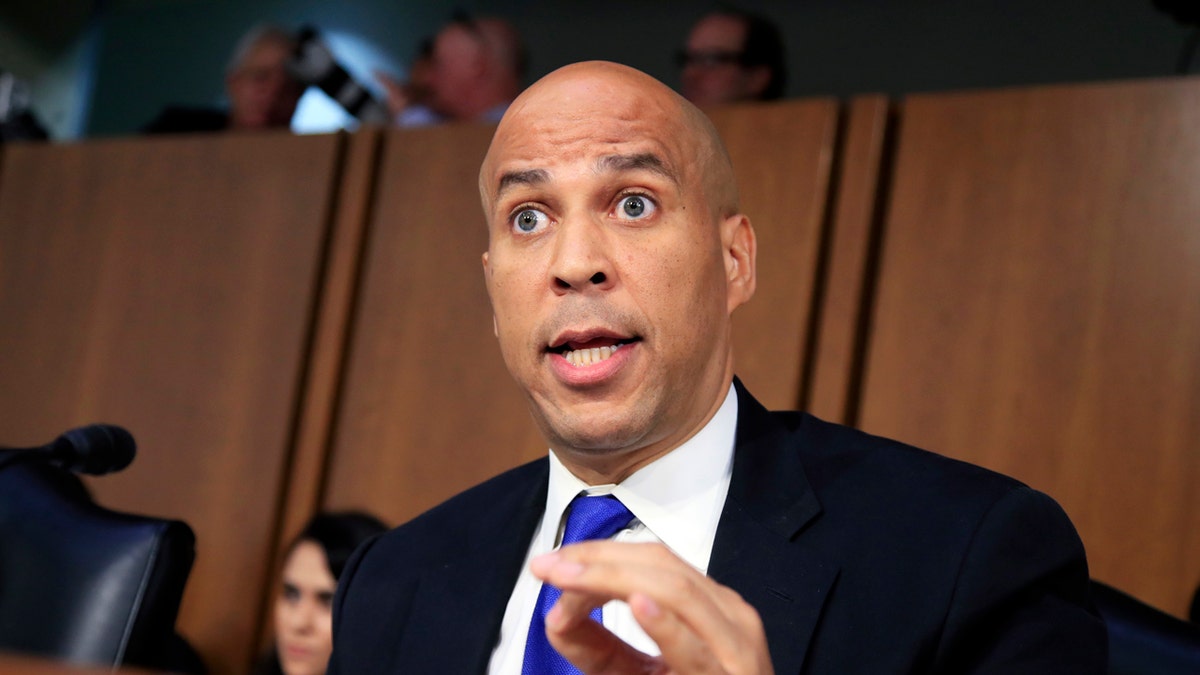
In this Sept. 4, 2018, photo, Senate Judiciary Committee member Sen. Cory Booker, D-N.J. speaks during the committee’s Supreme Court nominee Brett Kavanaugh’s nominations hearing on Capitol Hill in Washington. (AP)
A Habba spokeswoman told Fox News Digital that Habba is still the interim U.S. attorney through Friday. But the tension between the DOJ and the judges leaves open the question of who will assume the role come Saturday.
Booker said that firing a court-appointed U.S. attorney was part of a «pattern» of the DOJ flouting the law.
«The firing of a career public servant, lawfully appointed by the court, is another blatant attempt to intimidate anyone that doesn’t agree with them and undermine judicial independence,» Booker wrote on X.
Booker is among the critics who have deemed Habba unqualified for the job. Habba, who served as Trump’s legal spokeswoman and personal defense lawyer during his criminal prosecutions, had no experience as a prosecutor before Trump appointed her as lead prosecutor in New Jersey.
Upon taking the job, Habba was accused of politicizing the role after she advocated turning New Jersey «red,» and she drew a rare rebuke from a judge for ordering Newark’s Democratic mayor arrested and then quickly dismissing the charges.
But Trump and DOJ leadership are standing firmly by Habba. The Trump administration found a workaround in the Northern District of New York when John Sarcone’s term as U.S. attorney recently expired there, but it is unclear if a similar option is available for Habba.
CLICK HERE TO GET THE FOX NEWS APP
Anne Joseph O’Connell, a Stanford Law School professor, wrote on Bluesky that she believed Trump had the authority to fire Grace and possibly re-appoint Habba to serve out another temporary term.
«The question now is, will they name Habba to a new 120-day interim US attorney appointment or will they turn to the Vacancies Act and name a different person as acting U.S. attorney,» O’Connell wrote.
INTERNACIONAL
De la IA a Starlink: cómo la tecnología de los drones está transformando la guerra en Ucrania

A medida que la guerra en Ucrania entra en su quinto año, los drones han llegado a dominar por completo la línea del frente, una transformación en la guerra moderna que está siendo observada en todo el mundo.
He aquí una mirada a la tecnología que está transformando la guerra, cuatro años después de que Rusia lanzó su invasión a gran escala enviando tanques y hombres a través de la frontera:
Los drones, que van desde dispositivos comerciales baratos diseñados para uso civil hasta aeronaves en miniatura cargadas de explosivos, son responsables de hasta el 80 por ciento de los daños en el campo de batalla, afirmó el ministro de Defensa de Ucrania , Mykhailo Fedorov.
“La guerra moderna es ahora imposible sin drones”, declaró a la AFP Koleso, un soldado de infantería ucraniano, en el este de Ucrania .
La línea del frente se ha transformado en una “zona de muerte” que se extiende hasta 20 kilómetros (12 millas) de profundidad: “un área entre dos lados donde nada puede sobrevivir porque está constantemente monitoreada por drones”, explicó la experta militar Kateryna Bondar.
Los soldados sólo pueden operar allí en pequeños grupos, moviéndose rápido y con la mirada fija en el cielo, con la esperanza de pasar desapercibidos.
Las piezas de artillería pesada, así como los lentos tanques y vehículos blindados, son demasiado lentos y visibles, lo que los convierte en blancos fáciles para ambos bandos.
Las tropas ucranianas, que no están dispuestas a enviar más hombres de los necesarios a la zona de exterminio, utilizan drones terrestres para transportar suministros a áreas peligrosas y evacuar a los soldados heridos.

Mantener una conexión estable entre el dron y su operador, controlándolo de forma remota, es una tarea crucial. “Ahí es donde se desarrolla la verdadera carrera : las comunicaciones y las conexiones”, dijo Bondar.
Inicialmente, la mayoría de los drones funcionaban mediante una conexión de radio. Pero demostraron ser vulnerables a la guerra electrónica, la práctica de interferir e interceptar naves enemigas, provocando que caigan del cielo o pierdan la conexión con el operador.
Rusia ha recurrido a drones controlados por cables de fibra óptica ultrafinos, en gran medida inmunes a las interferencias electrónicas. En escenas que parecen una película de ciencia ficción distópica, su uso generalizado ha dejado franjas de ciudades y campos de primera línea sepultados en redes de cables.
Como otra alternativa al control por radio, los ucranianos han comenzado a colocar terminales Starlink en los drones. Esto les permite volar utilizando una conexión a Internet por satélite.
“Necesitamos volar lejos con una señal de vídeo estable y un control estable”, dijo Phoenix, un comandante del Grupo Lasar de Ucrania, pionero en el uso de Starlink .
Las tropas rusas pronto comenzaron a copiar, hasta que Ucrania presionó a Elon Musk el mes pasado para que desactivara terminales rusas no autorizadas. La medida alteró los sistemas rusos y ucranianos, dijeron observadores militares.
El Instituto para el Estudio de la Guerra, con sede en Estados Unidos, dijo que el apagón probablemente ayudó a posibilitar un avance ucraniano localizado, pero rápido, en la región sureña de Zaporizhia a principios de febrero.
La proliferación de drones ha obligado a renovar los sistemas de defensa aérea. Disparar misiles avanzados, que pueden costar millones, para derribar drones que valen apenas una fracción de eso es una respuesta demasiado costosa.
Además de realizar interferencias, Ucrania también ha desarrollado drones interceptores baratos, construidos específicamente para destruir otras naves en el aire. “Abrimos el capítulo de la guerra de los drones con drones”, dijo Marko Kushnir de General Cherry, un fabricante líder de drones interceptores .
Las carreteras cercanas al frente han sido equipadas con redes protectoras que intentan detener los drones atacantes, mientras que camiones equipados con jaulas antidrones y bloqueadores de drones pasan a toda velocidad por ellas.
Las ametralladoras también son un último recurso para derribar drones del cielo. Los aliados occidentales de Ucrania han recurrido cada vez más a la experiencia de Kiev después de que drones rusos hicieran repetidas incursiones en el espacio aéreo europeo en los últimos meses.
Los ingenieros están compitiendo para equipar los drones con inteligencia artificial para mejorar su rendimiento.
Empresas ucranianas como The Fourth Law (TFL) dicen haber desarrollado la llamada guía terminal, que permite a la IA tomar el control de un dispositivo en los momentos finales antes del impacto. Esto tiene como objetivo mejorar la precisión de los golpes, especialmente porque la conexión generalmente se pierde en los momentos finales antes de un golpe.
“Rusia y China también están desarrollando este tipo de tecnologías, y si nuestros países no lo hacen… perderemos”, dijo Maksym Savanevskyi de TFL. Pero la autonomía plena aún está lejos.
“La IA está cumpliendo una función de ayuda en lugar de sustituir a la humana”, afirmó Bondar, el experto militar. “Pensé que simplemente podrían retirar a la gente del equipo de batalla, que podría automatizarse completamente. Esa es una visión ingenua”, dijo el ex director ejecutivo de Google, Eric Schmidt, ahora director de SwiftBeat, una empresa que suministra drones con inteligencia artificial al ejército de Ucrania .
“En el futuro previsible, primero tendremos drones y después personas”, dijo en una conferencia en Kiev. Durante todo el frente oriental, Koleso afirmó que los soldados de infantería siempre seguirían siendo relevantes.
“Hasta que no plantes la bandera tú mismo, con tus propias manos, y tomes la posición, no puede considerarse tuya”, dijo.
(AFP)
Europe,KYIV
INTERNACIONAL
Trump’s NIH director isn’t the only official wearing multiple hats during the president’s second term
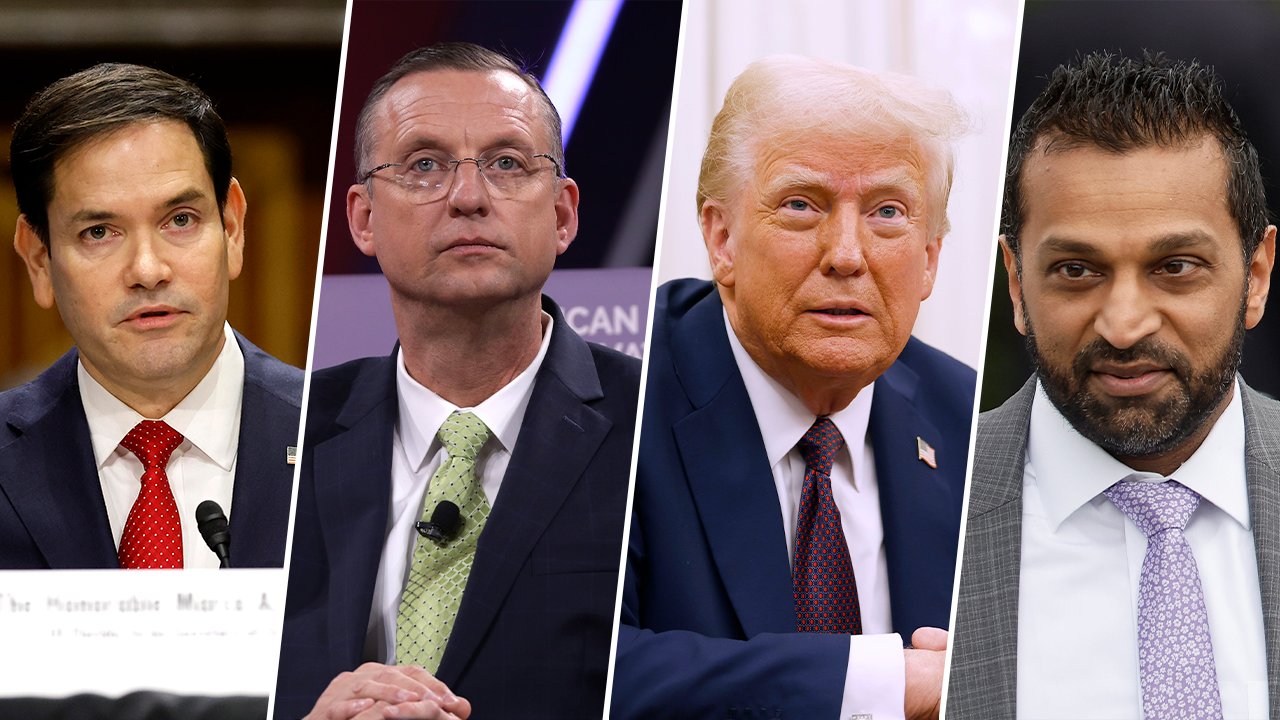
NEWYou can now listen to Fox News articles!
The Trump administration has repeatedly assigned additional job roles to Cabinet members and other officials, and one of his top health officials is the latest to begin pulling double duty for the president.
On Wednesday, National Institutes of Health (NIH) Director Jay Bhattacharya became the latest Trump official assigned an additional role. The NIH chief and staunch COVID contrarian will temporarily run the Centers for Disease Control and Prevention (CDC) until a new permanent director is appointed by President Donald Trump and subsequently confirmed by the Senate, while continuing to lead the NIH.
Bhattacharya’s move to the CDC followed the departure of Jim O’Neill, who was also deputy secretary of the Health and Human Services Department amid a broader restructuring of the Trump administration’s public health agencies. O’Neill is now reportedly expected to lead the National Science Foundation.
Fox News Digital looked back on the various Trump Cabinet members and officials wearing multiple hats as the president adjusts during the second year of his second term.
TRUMP TOUTS ‘MOST SUCCESSFUL’ FIRST 100 DAYS IN PRESIDENTIAL HISTORY DURING MICHIGAN RALLY
Secretary of State Marco Rubio, Secretary of the VA Doug Collins, President Donald Trump and FBI Director Kash Patel. (Getty Images)
Dr. Jay Bhattacharya
A physician, former Stanford professor of medicine and senior fellow at the university’s Institute for Economic Policy Research, Bhattacharya was a leading voice during the COVID-19 pandemic against lockdown measures and vaccine mandates.
He was one of the co-authors of the Great Barrington Declaration, a document published in October 2020 by a group of scientists advocating against widespread COVID lockdowns and promoting the efficacy of natural immunity for low-risk individuals as opposed to vaccination.
During Bhattacharya’s tenure, he has been forced to defend certain funding cuts tied to academic research and staffing. One of the core components Bhattacharya indicated that he wanted to pursue after his confirmation was to usher in a new age of «gold standard science.»
«I think fundamentally what matters is do scientists have an idea that advances the scientific field they’re in?» Bhattacharya said during his March confirmation testimony. «Do they have an idea that ends up addressing the health needs of Americans?»

Dr. Jay Bhattacharya will lead both the National Institutes of Health and the Centers for Disease Control and Prevention. (Getty Images)
Marco Rubio
Rubio and the Trump administration came under fire from Democrats for the secretary of state holding as many as four high-profile roles during the second Trump administration. As of today, he remains in two of those roles.
He was first confirmed as secretary of state hours after Trump was inaugurated, a role Rubio remains in today.
About a month later, amid a massive reorganization at the U.S. Administration for International Development (USAID), Rubio was named director and held that role until handing it off a few months later.
Around the same time, Rubio was tapped to be the acting archivist of the United States (NARA), a role he stopped serving in earlier this month.
Rubio does still serve as the interim national security advisor, a role he has held since May after the departure of Michael Waltz.
«There’s no way he can do that and do it well, especially since there’s such incompetence over at DOD with Pete Hegseth being secretary of defense and just the hollowing out of the top leadership,» Illinois Democratic Sen. Tammy Duckworth said of Rubio’s multiple jobs. «There’s no way he can carry all that entire load on his own.»
CRITICS WARNED TRUMP’S DEPORTATIONS WOULD SPARK BLOODSHED – PROGRESSIVE GROUP REPORTS POLICE KILLINGS FELL
«I don’t know how anybody could do these two big jobs,» Democratic Virginia Sen. Mark Warner added.
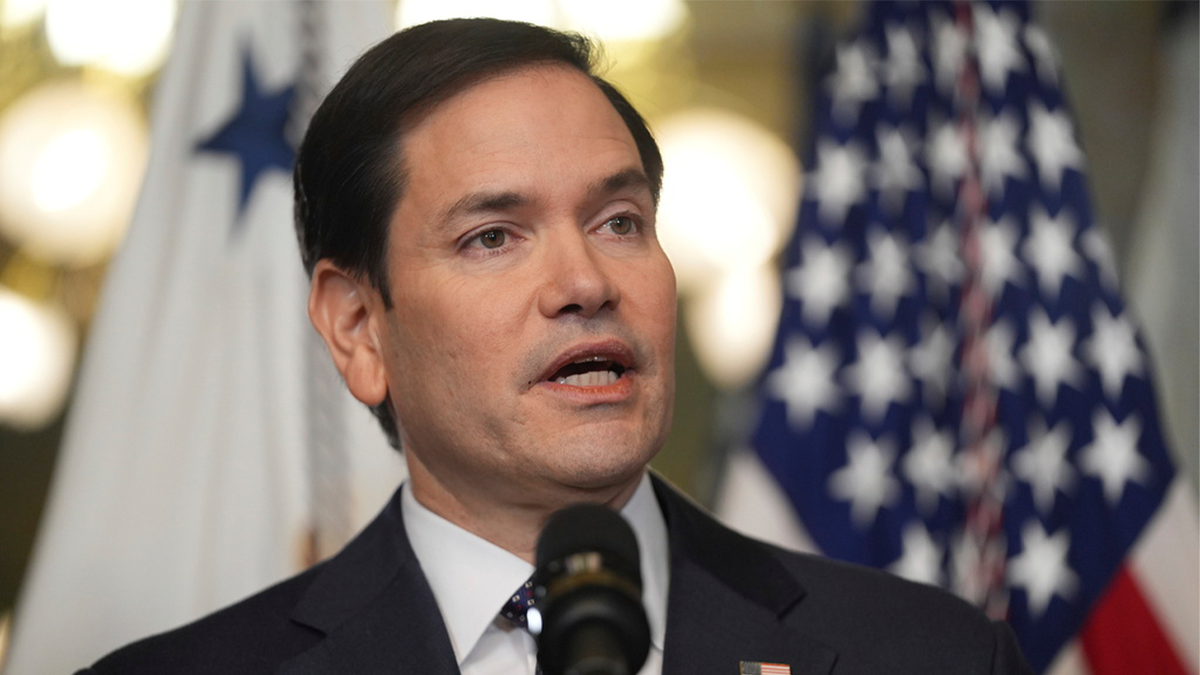
Secretary of State Marco Rubio serves in four different roles with the administration. (Evan Vucci/Associated Press)
When asked about the trend of Trump officials wearing multiple work hats in May, the White House reflected in a comment to Fox News Digital on former President Joe Biden’s «disaster of a Cabinet.»
«Democrats cheered on Joe Biden’s disaster of a Cabinet as it launched the botched Afghanistan withdrawal, opened the southern border to migrant criminals, weaponized the justice system against political opponents and more,» White House spokesperson Anna Kelly told Fox News Digital in May.
«President Trump has filled his administration with many qualified, talented individuals he trusts to manage many responsibilities.»
The Trump administration has repeatedly brushed off concerns over Rubio holding multiple roles, most notably juggling both his State Department leadership and serving as acting national security advisor. Similarly, former President Richard Nixon in 1973 named National Security Advisor Henry Kissinger to simultaneously serve as Secretary of State.
TRUMP NOMINATES WALTZ FOR HIGH-LEVEL POST AFTER OUSTING HIM AS NATIONAL SECURITY ADVISOR
«You need a team player who is very honest with the president and the senior team, not someone trying to build an empire or wield a knife or drive their own agenda,» an administration official told Politico. «He is singularly focused on delivering the president’s agenda.»
Despite Democratic rhetoric that Rubio was taking on too many roles, the former Florida senator helped oversee successful U.S. strikes on Iran in June, which destroyed a trio of nuclear sites and decimated the country’s efforts to advance its nuclear program.
Kash Patel
FBI Director Kash Patel, who railed against the «deep state» and vowed to strip corruption from the federal law enforcement agency ahead of his confirmation, was briefly charged with overseeing the Bureau of Alcohol, Tobacco, Firearms and Explosives (ATF) in February after the Biden-era director resigned in January 2025.
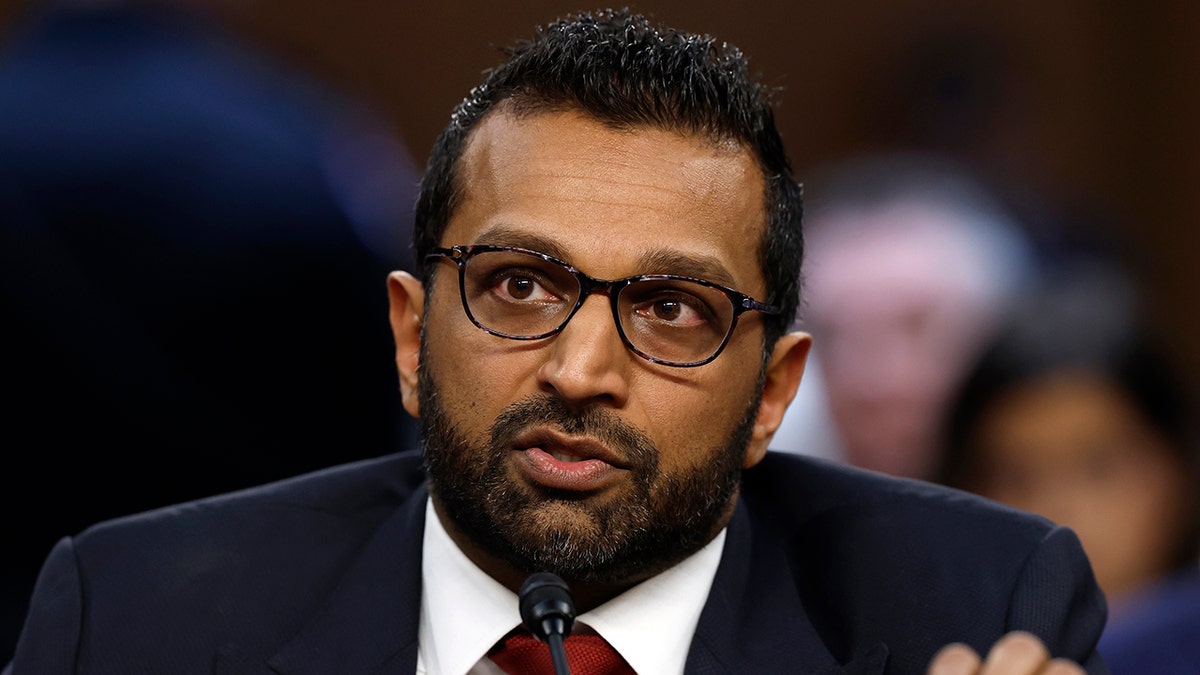
Kash Patel briefly served as acting director of the ATF and FBI director. (Anna Moneymaker/Getty Images)
Patel was later replaced by Secretary of the Army Daniel Driscoll as acting ATF director in a job change that was reported publicly in April.
ARMY SECRETARY DAN DRISCOLL TO LEAD ATF, REPLACING FBI DIRECTOR KASH PATEL
«Director Kash Patel was briefly designated ATF director while awaiting Senate confirmations, a standard, short-term move. Dozens of similar redesignations have occurred across the federal government,» the White House told Reuters in April. «Director Patel is now excelling in his role at the FBI and delivering outstanding results.»
Sean Duffy
Duffy, a former Republican congressman from Wisconsin, was tapped to oversee the Department of Transportation and was confirmed by the Senate Jan. 28. Duffy has been forced to juggle a handful of crises related to tragic plane crashes, including the 2025 Potomac River midair collision and air traffic control issues that plagued New Jersey’s Liberty International Airport last year.
In July, President Trump announced Duffy would also serve as interim chief of NASA. Duffy remained in that position until mid-December, when commercial astronaut Jared Isaacman took over.
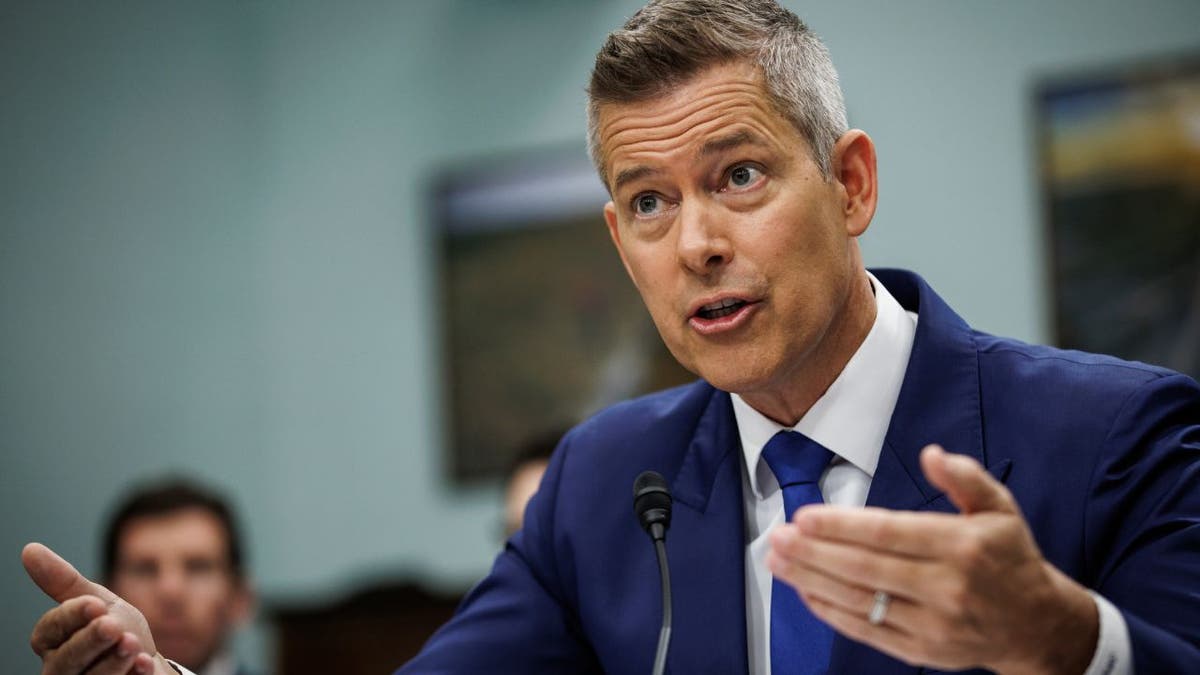
Trump tapped Secretary of Transportation Sean Duffy to temporarily lead NASA. (Samuel Corum/Getty Images)
Prior to Trump’s inauguration in January 2025, the president announced he would be nominating Isaacman but withdrew his nomination in May before the full Senate confirmed him. Trump said the decision followed a review of Isaacman’s «prior associations,» pointing to money he has given to Democrats.
However, Isaacman suggested at the time that the rescission of his nomination may have been due to his connections to Elon Musk, who was running the Department of Government Efficiency (DOGE) at the time.
Duffy replaced Janet Petro, who had served as acting NASA administrator since Trump’s inauguration.
Daniel Driscoll
Driscoll was sworn in as the 26th secretary of the Army in February. The secretary of the army is a senior-level civilian official charged with overseeing the management of the Army and also acts as an advisor to the secretary of defense in matters related to the Army.
It was reported in April that Driscoll was named acting ATF director, replacing Patel in that role.
NEW ARMY SECRETARY PRAISES TRUMP, HEGSETH FOR CREATING ‘A LANE FOR CHANGE’ AS HE ZEROES IN ON CUTTING WASTE
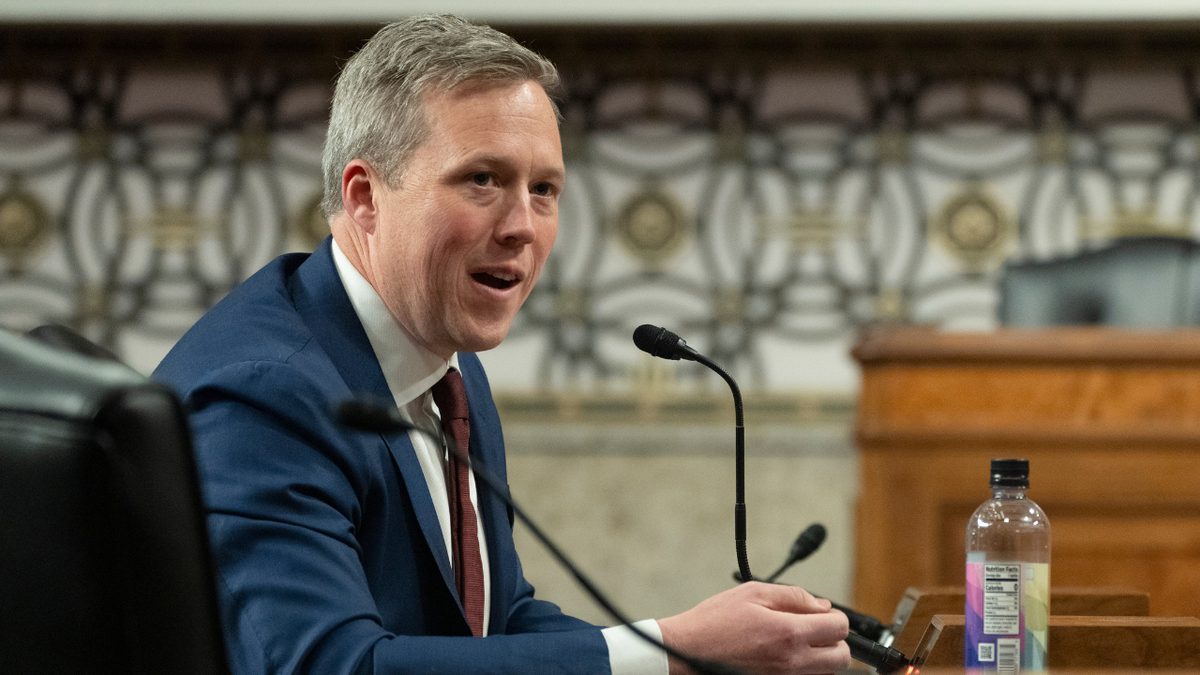
Daniel Driscoll is the 26th secretary of the U.S. Army. (Manuel Balce Ceneta/Associated Press)
«Mr. Driscoll is responsible for the oversight of the agency’s mission to protect communities from violent criminals, criminal organizations, and the illegal trafficking of firearms, explosives, and contraband,» his ATF biography states. «Under his leadership, the ATF works to enforce federal laws, ensure public safety, and provide critical support in the investigation of firearms-related crimes and domestic and international criminal enterprises,»
Ahead of Trump taking office, Republican representatives Eric Burlison of Missouri and Lauren Boebert of Colorado introduced legislation to abolish the ATF, saying the agency has worked to strip Second Amendment rights from U.S. citizens.
The ATF has been tasked with assisting the Department of Homeland Security in its deportation efforts under the Trump administration.
Driscoll remains listed as the agency’s acting director as of February 2026.
Doug Collins
Former Georgia Republican Rep. Doug Collins was sworn in as the Trump administration’s secretary of Veterans Affairs in February, a Cabinet-level position tasked with overseeing the department and its mission of providing health, education and financial benefits to military veterans.
Days after his confirmation as VA secretary, Trump tapped Collins to temporarily lead two oversight agencies, the Office of Government Ethics and the Office of Special Counsel.
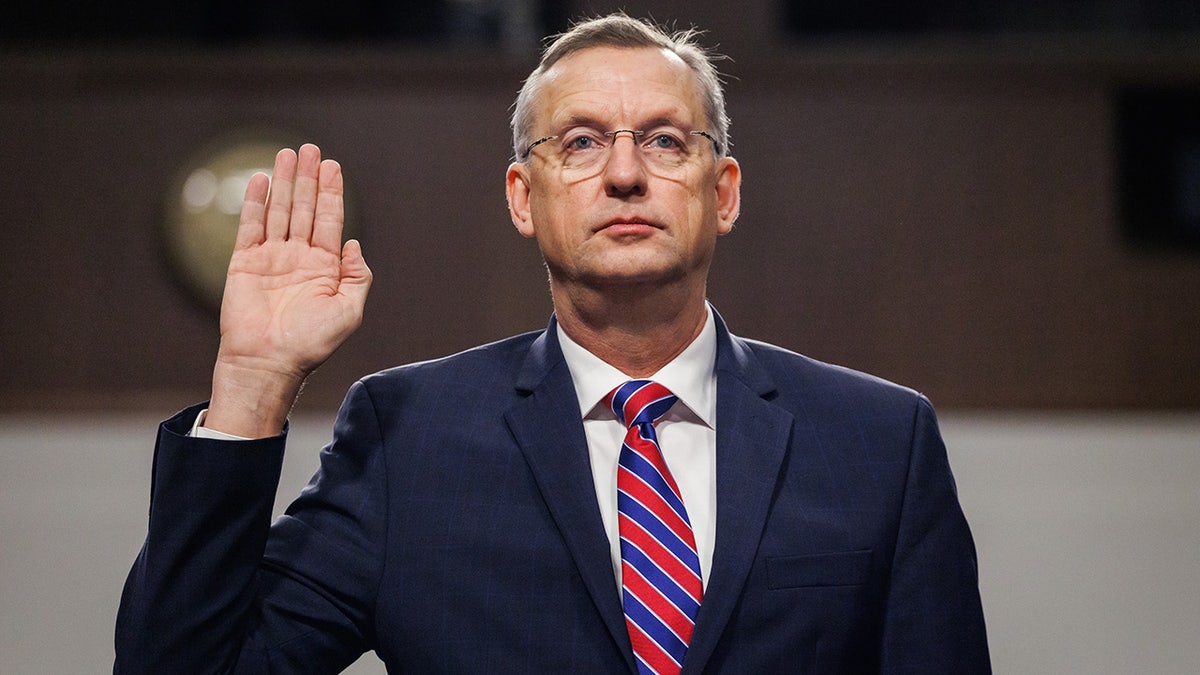
Former Georgia Republican Rep. Doug Collins was sworn in as the Trump administration’s secretary of Veterans Affairs in February. (Samuel Corum/Getty Images)
VA SECRETARY ACCUSES REPORTER OF SPREADING ‘RUMORS’ ABOUT DOGE THAT HURT VETERANS IN TENSE CLASH
The Office of Government Ethics is charged with overseeing the executive branch’s ethics program, including setting ethics standards for the government and monitoring ethics compliance across federal agencies and departments.
The Office of Special Counsel is charged with overseeing and protecting the federal government’s merit system, most notably ensuring federal whistleblowers don’t face retaliation for sounding the alarm on an issue they’ve experienced. The office also has an established secure channel to allow federal employees to blow the whistle on alleged wrongdoing.
The Office of Special Counsel also enforces the Hatch Act, which bans executive branch staffers, except the president and vice president, from engaging in certain forms of political activity.
Jamieson Greer
Trump’s trade representative, Jamieson Greer, has also been tapped for multiple roles within the administration, in addition to helping lead the administration’s tariff negotiations to bring parity to the chronic U.S. trade deficit with other nations.
Greer took on Collins’ roles as acting director of the Office of Government Ethics and as acting special counsel of the Office of Special Counsel April 1.
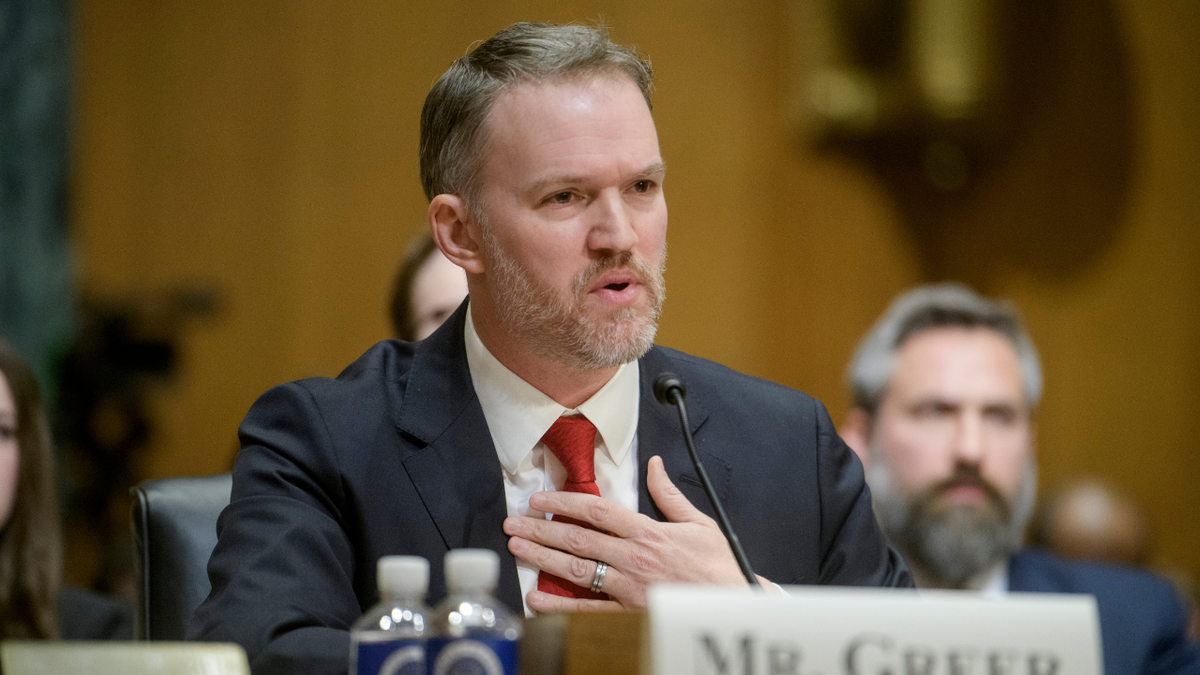
Jamieson Greer serves as President Trump’s trade representative in addition to other interim roles. (Rod Lamkey, Jr./The Associated Press)
Trump nominated conservative attorney Paul Ingrassia to lead the Office of Special Counsel in May, but he subsequently withdrew his nomination amid concerns about his rhetoric and other accusations the young conservative was facing at the time.
Russell Vought
Trump named his former director of the Office of Management and Budget during his first administration, Russell Vought, to the same role in his second administration. Vought was confirmed as the federal government’s budget chief in February.
Days later, Vought was also named the acting director of the Consumer Financial Protection Bureau (CFPB), a position he still holds.
RUSS VOUGHT, TAPPED AS CFPB’S ACTING DIRECTOR, DIRECTS BUREAU TO ISSUE NO NEW RULES, STOP NEW INVESTIGATIONS
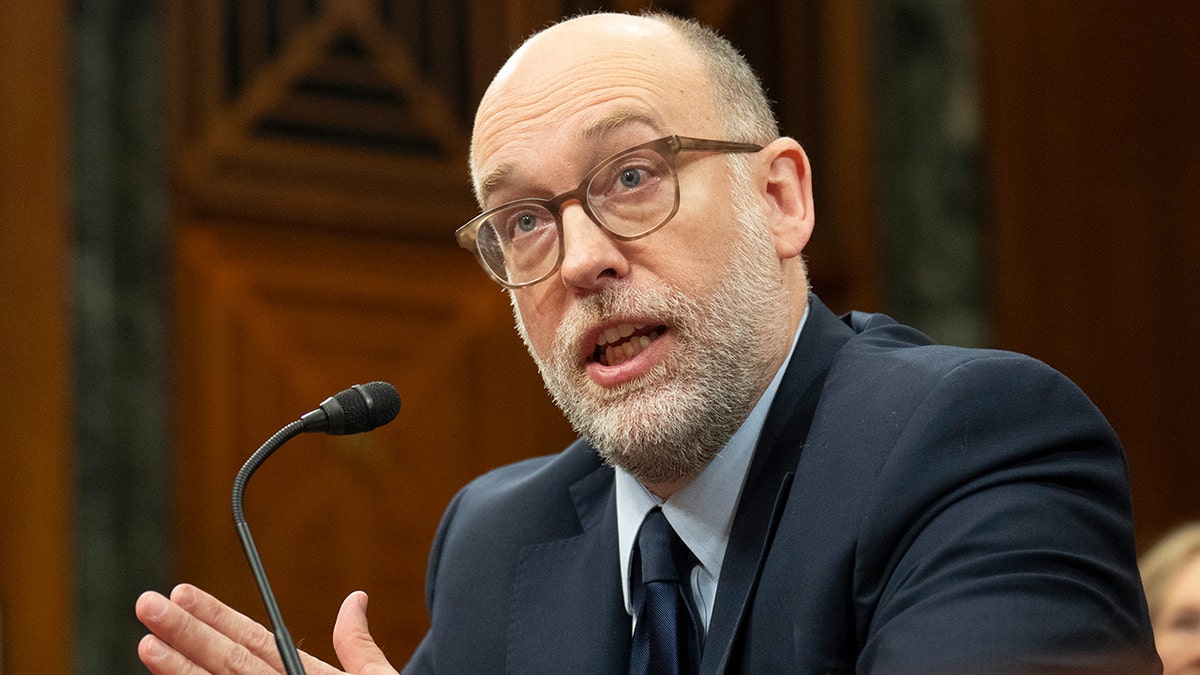
Russell Vought serves as director of the Office of Management and Budget. (Jacquelyn Martin/AP)
The CFPB is an independent government agency charged with protecting consumers from unfair financial practices in the private sector. It was created in 2010 under the Obama administration after the financial crash in 2008. Democratic Massachusetts Sen. Elizabeth Warren originally proposed and advocated for the creation of the agency.
The CFPB came under fierce investigation from the Department of Government Efficiency in February, with mass terminations rocking the agency before the reduction in force initiative was tied up in court.
Ric Grenell
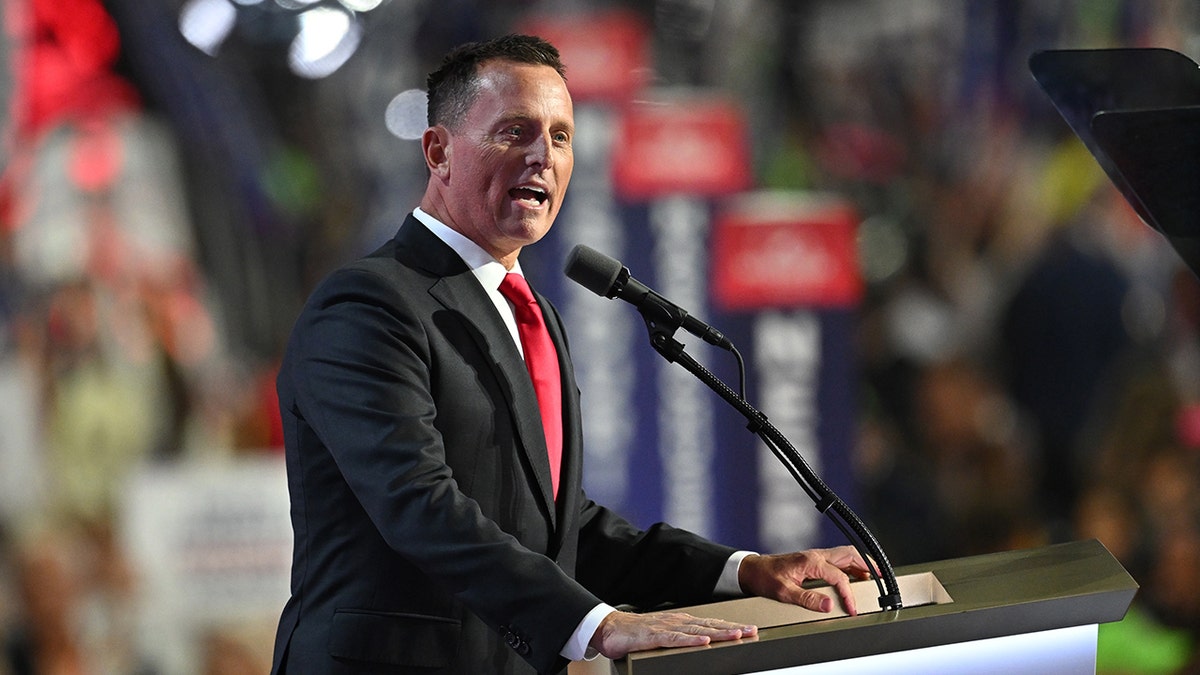
Kennedy Center President Ric Grenell also serves as special presidential envoy for special missions of the United States. (Leon Neal/Getty Images)
President Donald Trump’s former ambassador to Germany and acting director of national intelligence during his first term, a pair of roles held at separate times in the first administration, currently serves as president of the Kennedy Center and special presidential envoy for special missions of the United States.
GRENELL DEVELOPING ‘COMMONSENSE’ PLAN TO TURN KENNEDY CENTER FINANCIALS AROUND
The John F. Kennedy Center for the Performing Arts serves as the national cultural center of the U.S. Trump notably serves as the center’s chairman, and Grenell said the center will see a «golden age» of the arts during Trump’s second administration through productions and concerts that Americans actually want to see after years of the performing arts center running in the red.
Trump named Grenell his special presidential envoy for special missions to the United States in December 2024 before his inauguration, saying Grenell will «work in some of the hottest spots around the world, including Venezuela and North Korea.»
CLICK HERE TO GET THE FOX NEWS APP
In this role, Grenell helped lead the administration through its response to the wildfires that tore through Southern California in the last days of the Biden administration through the beginning days of the Trump administration.
Fox News Digital’s Jasmine Baehr contributed to this report.
donald trump,white house,fbi,executive,politics,coronavirus
INTERNACIONAL
Gran Bretaña no permitirá que Estados Unidos utilice la isla Diego García para un eventual ataque a Irán
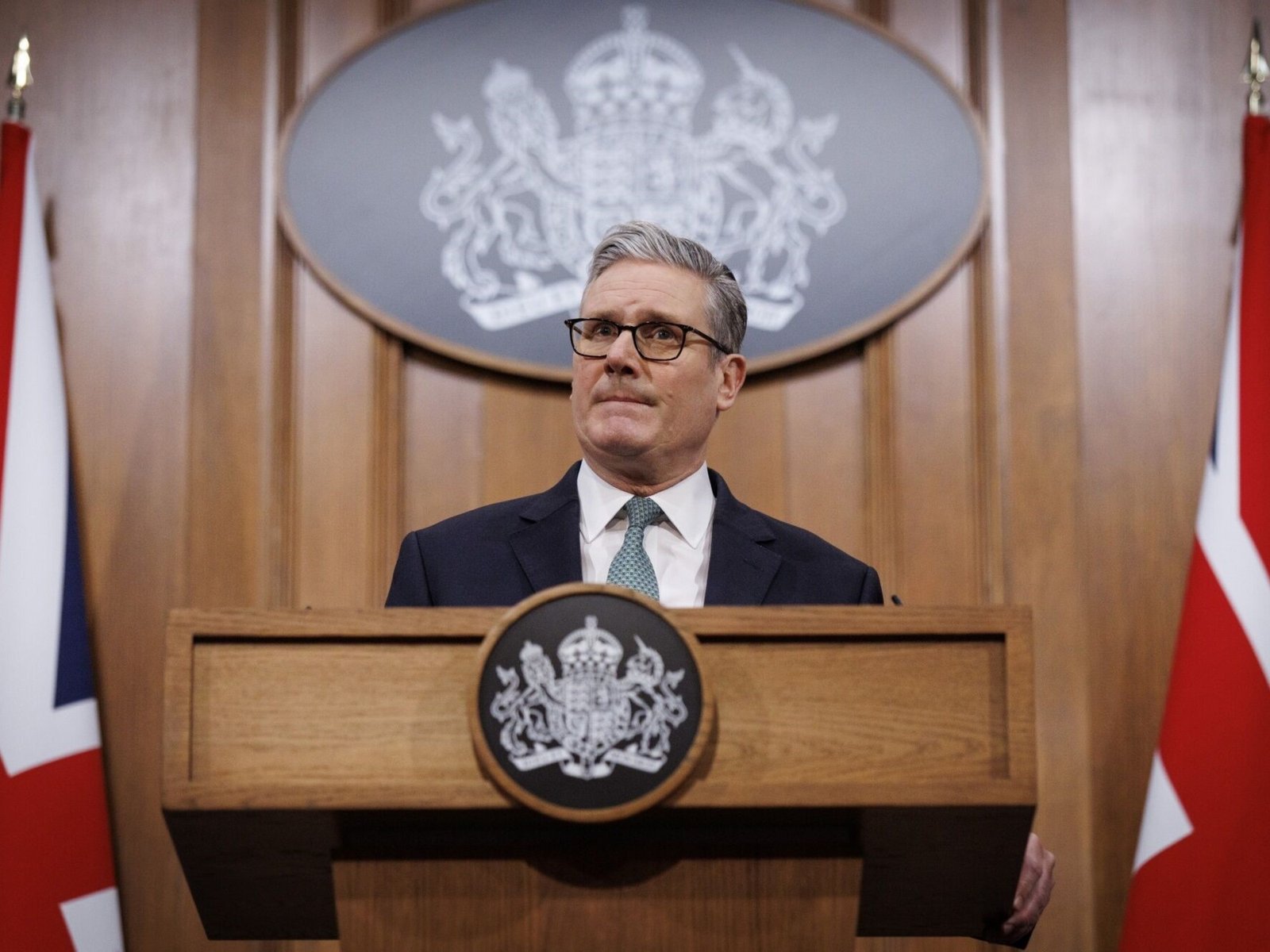
La ley del talión está en marcha en la diplomacia entre Estados Unidos y Gran Bretaña. Todo a causa de Groenlandia, la decisión del Reino Unido de defender su soberanía y ser parte de la misión que la OTAN envió al territorio que Donald Trump quiere anexar con negociaciones o por la fuerza. El presidente Trump ha retirado su apoyo al acuerdo del primer ministro Sir Keir Starmer para entregar las islas Chagos a Mauricio, ya que el Reino Unido no ha accedido a permitir el uso de bases británicas para atacar a Irán.
Trump proyecta atacar el sábado a Irán. Necesita la isla de Diego García, en el archipiélago de Chagos, para que despeguen sus aviones B52.
La Casa Blanca está elaborando planes militares detallados para un ataque contra Irán, que implica el uso de la base Diego García y la RAF Fairford en Gloucestershire, sede de la flota estadounidense de bombarderos pesados en Europa. Según los acuerdos de larga data con Washington, estas bases solo pueden utilizarse para operaciones militares previamente acordadas con el gobierno.
Reino Unido aún no ha autorizado a Estados Unidos a utilizar las bases en caso de que Trump ordene un ataque contra Irán, debido a la preocupación de que esto constituiría una violación del derecho internacional, el cual no distingue entre el Estado que lleva a cabo el ataque y quienes lo apoyan si estos últimos tienen «conocimiento de las circunstancias del acto internacionalmente ilícito».
El presidente Trump habló con el primer ministro Starmer el martes por la noche. Ambos conversaron sobre el ultimátum de Trump a Irán sobre su programa nuclear. Al día siguiente, Trump emitió su declaración criticando el acuerdo de Chagos.
En 2021, John Healey, el actual secretario de Defensa, solicitó en la Cámara de los Comunes una aclaración al entonces gobierno conservador sobre las normas básicas para el uso de bases británicas por parte de las fuerzas estadounidenses. Se le informó que una operación militar propuesta debería ajustarse a la legislación del Reino Unido y a la interpretación británica del derecho internacional pertinente.
La postura del Reino Unido sobre los ataques preventivos es bien conocida. Antes de la guerra de Irak, Lord Goldsmith, el entonces fiscal general, argumentó que el derecho internacional solo permitía el uso de la fuerza en defensa propia en caso de un ataque real o inminente. Goldsmith argumentó posteriormente que una resolución de la ONU relativa a Irak la convertía en una guerra legal.
En la declaración de Trump del miércoles por la noche, el presidente hizo una referencia explícita a Irán y al papel que el Reino Unido podría desempeñar en cualquier ataque. También pareció sugerir que el apoyo británico sería legal según el derecho internacional, ya que Irán podría potencialmente atacar al país europeo.
“Si Irán decide no llegar a un acuerdo, podría ser necesario que Estados Unidos utilice Diego García y el aeródromo ubicado en Fairford para erradicar un posible ataque de un régimen altamente inestable y peligroso”, escribió en su sitio web Truth Social. “Un ataque que potencialmente se lanzaría contra el Reino Unido, así como contra otros países amigos”, precisó Trump.
Luego añadió: “Siempre estaremos listos, dispuestos y capaces de luchar por el Reino Unido. Pero deben mantenerse firmes frente al wokeismo y otros problemas que se les presenten”.
El gobierno ha insistido repetidamente en que un acuerdo de cesión con Mauricio, que se espera cueste al contribuyente 35.000 millones de libras, es necesario por razones de seguridad y evitaría una costosa batalla legal por el territorio.
En declaraciones realizadas hoy, Alex Davies-Jones, ministra de Víctimas, insistió en que el primer ministro cumpliría con el acuerdo y presentaría la legislación ante el parlamento lo antes posible.
Declaró a Times Radio: «Seguiremos trabajando con nuestros aliados, incluidos los estadounidenses, en esto. Pero, ante todo, la prioridad debe ser la seguridad nacional, y eso es lo que este gobierno está determinado a lograr».
«Hace apenas dos semanas respaldaron el acuerdo, y esta semana Estados Unidos también lo hizo. Seguiremos manteniendo conversaciones con los estadounidenses y otros aliados pero, como ya he dicho, la prioridad es nuestra base y la seguridad nacional».
Sin embargo, altos funcionarios del gobierno afirmaron en privado que el acuerdo no podía seguir adelante sin la aprobación estadounidense. Describieron la situación como «sombría».

 POLITICA2 días ago
POLITICA2 días agoReforma laboral bomba: menos indemnización, más horas y despidos más fáciles — el cambio que puede sacudir el empleo en Argentina

 POLITICA2 días ago
POLITICA2 días agoEl Gobierno endurece las medidas de seguridad y control en la marcha prevista contra la reforma laboral en el Congreso

 INTERNACIONAL3 días ago
INTERNACIONAL3 días agoHouse Dem’s graphic chicken decapitation ‘horrified’ her college roommates: ‘Blood went everywhere’















